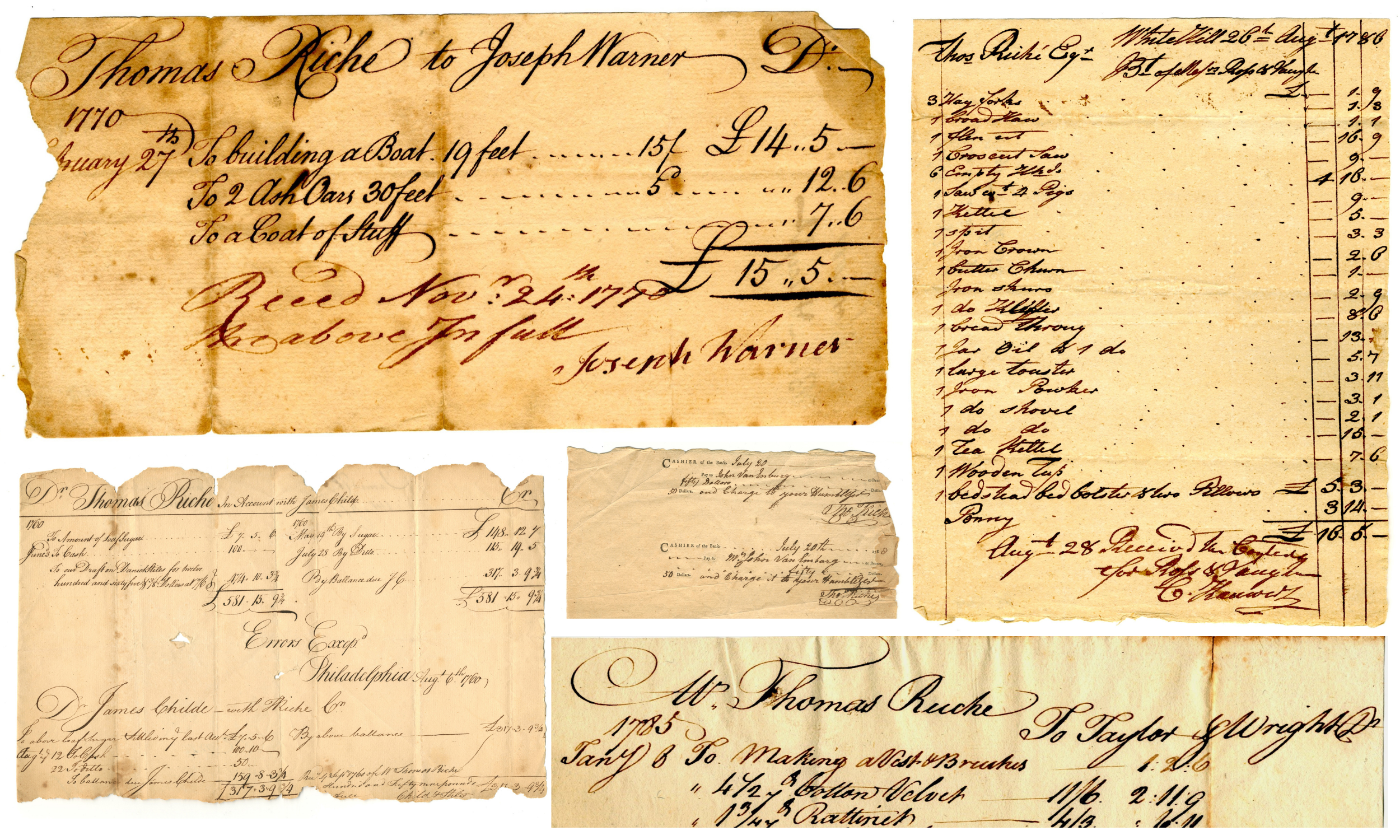Thomas Riche Receipts
July 1, 2020
This month’s Artifact of the Month is from a collection of historical merchant receipts. Our focus is on several documents from a Philadelphia merchant, Thomas Riche, documenting sales and payments prior to and after the Revolutionary War. The earliest receipt in the museum’s collection is dated August 6, 1760 – 16 years before the signing of the Declaration of Independence. The exact type of paper used for the receipts is unknown, but the ink used is iron gall ink, making the text harder to alter or forge. The receipts allow us to get an idea of how trade was conducted during this critical period in U.S. history. It is clear through the collection of receipts that Riche was an unspecialized merchant, his dealings ranging from mirrors to wine to wheat. One receipt revealed how Riche expanded his business by building his own ships so that he controlled more of his trade pipeline. Some of the receipts contain confirmations that borrowed assets had been received and others simply feature itemized listings of goods sold and purchased. These assorted receipts are numbered in the museum’s collection under #1988.572.
The years following the Revolutionary War were a time of expansion in many ways for the former British colonies in America. With its newfound freedom and independence, the United States of America took advantage of the absence of British trade regulations, building relationships with China, India, continental Europe, and South America. Before the War for Independence, as a direct result of increased enforcement of British regulations following the Seven Years’ War, merchants and businessmen alike within the colonies were starting to take interest in markets outside of the permitted network of commerce to soothe the sting of their financial losses.
Thomas Riche was one of the individuals that attempted to work around British government restrictions in pursuit of larger returns on investments. To this end, Riche drew up a contract to subcontract goods shipped from the colonies to French Guiana. The arrangement went poorly for Riche, who was defrauded by his partner and experienced further losses at the hands of British officials as his less than legal shipments were discovered. In an attempt to salvage the remnants of his broken contracts, Riche sought the aid of Benjamin Franklin, the colony’s agent in London, to negotiate with representatives of the French government on his behalf. All efforts to soften the blow of this risky trade agreement gone wrong were unsuccessful and Riche suffered immense losses as a result.
Category: Archival Materials
Region of Origin: American
Keywords:
Correspondence
